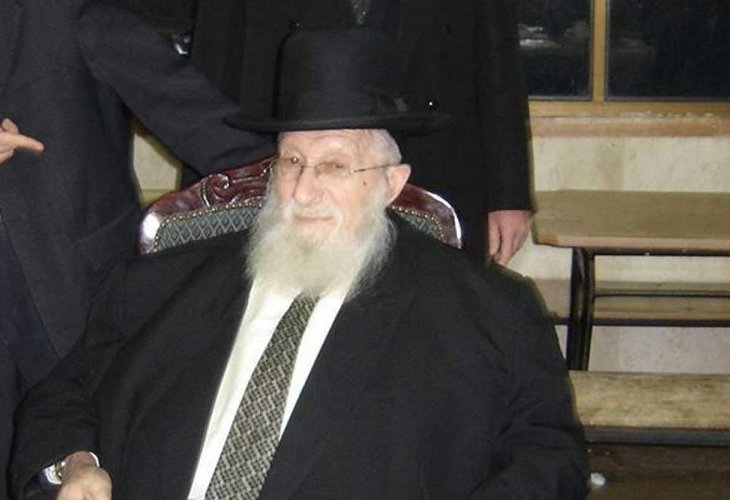Personal Stories
Rabbi Sheinberg's 80-Year Marriage: A Legacy of Love and Honor
These moving stories reveal how a respected Torah leader found greatness in everyday acts of love.
 Rabbi Chaim Pinchas Sheinberg zt"l
Rabbi Chaim Pinchas Sheinberg zt"lThe 27th of Adar marks the yahrzeit (anniversary of passing) of Rabbi Chaim Pinchas Sheinberg. Rabbi Sheinberg was the Rosh Yeshiva (head of a Torah academy) of Torah Ohr, a leading halachic authority, the community Rabbi of Kiryat Mattesdorf in Jerusalem, and a member of the Council of Torah Sages of Degel HaTorah. In his later years, he was known as the “Elder of Roshei Yeshivot” (heads of yeshivot).
In the book Demut, Rabbi Moshe Vito shares touching memories that reveal the deep love and respect Rabbi Sheinberg showed his Rebbetzin (rabbi’s wife):
Rabbi Sheinberg and the Rebbetzin were married nearly 80 years. A marriage filled with love, respect and peace. During the Rebbetzin’s final year, it was even rumored that someone from the Guinness Book of Records wanted to interview them as possibly the longest-married couple. Their honor and care for one another were so evident that you could feel the Shechinah (the Divine Presence) resting between them.
When a minyan (prayer quorum) would gather at their home for Friday night prayers, Rabbi Sheinberg would send a child to ask the Rebbetzin if she was ready to begin, making sure she had her siddur (prayer book). He wouldn't start without her. That was his way of honoring her presence and participation in the mitzvah.
Whenever Rabbi Sheinberg attended a celebration, he would bring home cakes for the Rebbetzin, year after year. In later years, when fancy napkins became popular, he’d carefully wrap the cake in a beautiful napkin, wanting to bring her a little extra joy and honor.
Their neighbor, Reb Mordechai Steinberg, shared a story that left a deep impression. One Motzei Shabbat (Saturday night), Rabbi Sheinberg returned home after 10 p.m., as he usually stayed in the yeshiva to strengthen the weekly learning session. A large group was waiting for him at the entrance. But without hesitation, Rabbi Sheinberg walked straight past them and into the house to greet his wife. In a loud and affectionate voice, he declared: "Di ershte zach a'gute voch tzu di greisa rebbetzin"—Yiddish for “First of all, a good week to the distinguished Rebbetzin!”
A former classmate of mine shared that about 30 years ago, when Rabbi Sheinberg was close to 80 years old, he came home one Friday afternoon and spoke with his Rebbetzin about how he could help her get ready for Shabbat. Should he wash dishes? Mop the floors? My friend, shocked that this elderly Torah sage would consider such physical chores, immediately offered to help the Rebbetzin himself. But for Rabbi Sheinberg, helping his wife was never beneath him instead, it was a joy and an honor.
In her final years, the Rebbetzin, weakened by illness, would sit quietly in a chair at the far end of the room while Rabbi Sheinberg learned Torah. Sometimes, he would ask guests to lift a large bookshelf on his table so he could catch a glimpse of her. Then he’d gently call out, asking how she was feeling. When she’d signal that all was well, he’d flash his warm, famous smile and motion to put the shelf back.
These stories offer us a glimpse into the soul of a Torah leader, not just in scholarship, but in middot tovot, beautiful character traits. Rabbi Sheinberg showed that greatness is often found in the quiet, tender moments: in honoring one’s spouse, in patience, and in love that spans a lifetime.

